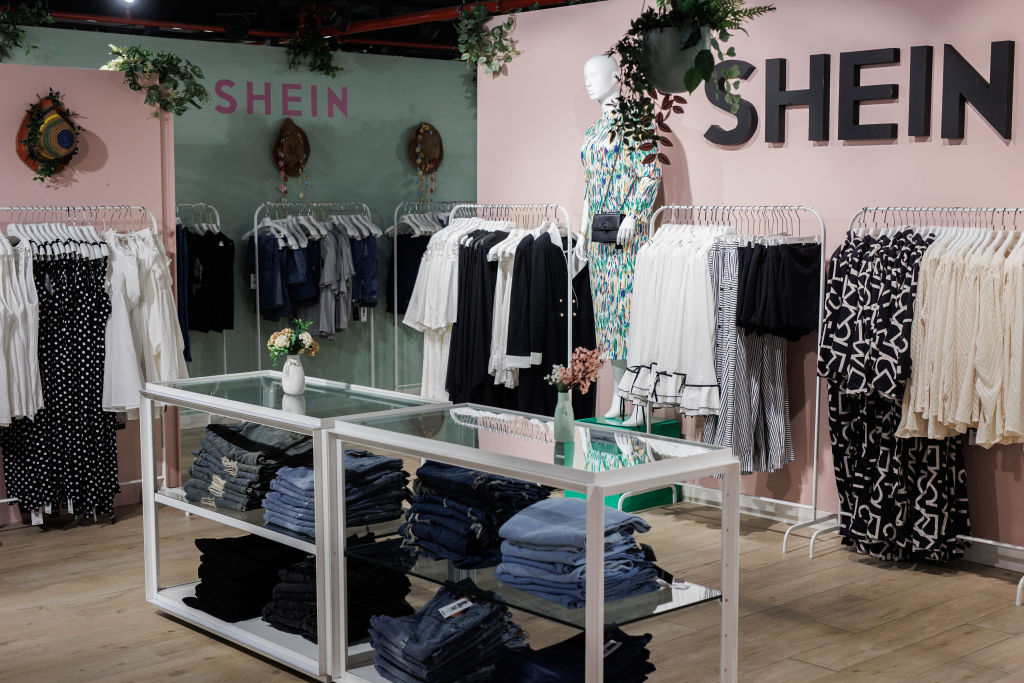Get the latest financial news, insights and expert analysis from our award-winning MoneyWeek team, to help you understand what really matters when it comes to your finances.
You are now subscribed
Your newsletter sign-up was successful
Want to add more newsletters?

Twice daily
MoneyWeek
Get the latest financial news, insights and expert analysis from our award-winning MoneyWeek team, to help you understand what really matters when it comes to your finances.

Four times a week
Look After My Bills
Sign up to our free money-saving newsletter, filled with the latest news and expert advice to help you find the best tips and deals for managing your bills. Start saving today!
Investors expect "a period of accelerating global economic growth and a sustained upswing in commodity prices", says Nick Train, manager of the Finsbury Growth and Income Trust (LSE: FGT). This has driven up the "value" and "cyclical" sectors of the UK stockmarket (in other words, cheap stocks and those that benefit from improving economic activity).
In contrast, blue-chip "quality growth" conglomerates such as Diageo are seen as "defensive" plays. Train "has no particular views as to whether this economic outlook will prevail", but thinks these issues are "of little importance" when set against other, more important trends.
One of these trends is "the growing scale of global merger and acquisition (M&A) activity" 2015 was "by far the biggest year for M&A in history", but 2017 could surpass it. Already, "proposed global M&A is running at $2trn, up over 70% year on year". Take Kraft Heinz's bid for Unilever in February, which Train deems the most significant event of the past half-year. "Is any company too big to be bought?" he wonders. Either way, "there is more to come".
MoneyWeek
Subscribe to MoneyWeek today and get your first six magazine issues absolutely FREE

Sign up to Money Morning
Don't miss the latest investment and personal finances news, market analysis, plus money-saving tips with our free twice-daily newsletter
Don't miss the latest investment and personal finances news, market analysis, plus money-saving tips with our free twice-daily newsletter
On top of that, quality growth companies are still cheap relative to history. US investor Warren Buffett, "who knows more about valuation than most, and 3G, arguably the most successful private-equity concern over the last decade", valued Unilever at £40 a share, "20% above Unilever's average price over the last year". While there "must be a price that is too high", Train is confident it is "unlikely to be so at current levels" stocks such as Unilever that consistently grow their dividends sustainably "are very rare" and so "very valuable".
Get the latest financial news, insights and expert analysis from our award-winning MoneyWeek team, to help you understand what really matters when it comes to your finances.
MoneyWeek is written by a team of experienced and award-winning journalists, plus expert columnists. As well as daily digital news and features, MoneyWeek also publishes a weekly magazine, covering investing and personal finance. From share tips, pensions, gold to practical investment tips - we provide a round-up to help you make money and keep it.
-
 Should you buy an active ETF?
Should you buy an active ETF?ETFs are often mischaracterised as passive products, but they can be a convenient way to add active management to your portfolio
-
 Power up your pension before 5 April – easy ways to save before the tax year end
Power up your pension before 5 April – easy ways to save before the tax year endWith the end of the tax year looming, pension savers currently have a window to review and maximise what’s going into their retirement funds – we look at how
-
 Europe’s new single stock market is no panacea
Europe’s new single stock market is no panaceaOpinion It is hard to see how a single European stock exchange will fix anything. Friedrich Merz is trying his hand at a failed strategy, says Matthew Lynn
-
 Bitcoin 'has become the reserve asset of the internet'
Bitcoin 'has become the reserve asset of the internet'Opinion The cryptocurrency has established itself as the electronic version of gold, says ByteTree’s Charlie Morris
-
 London Stock Exchange exodus: which companies could be next to go?
London Stock Exchange exodus: which companies could be next to go?As many companies exit London, the steady trickle of stocks listing elsewhere could turn into a stampede. Who will be next, and what does this mean for investors?
-
 Is the London Stock Exchange in peril?
Is the London Stock Exchange in peril?More than 150 companies have left the London Stock Exchange or moved their primary listing since the start of 2024. What does it mean for investors and the economy?
-
 Shein prepares for London Stock Exchange listing
Shein prepares for London Stock Exchange listingShein plans for a London Stock Exchange listing after facing hurdles in New York. It’s in a race against time. Matthew Partridge reports
-
 Four stocks for 2026
Four stocks for 2026As the year draws to an end, investment experts suggest four stocks that investors may want to keep an eye on for 2026
-
 Retail bond paying 8.25% launches – should you buy it?
Retail bond paying 8.25% launches – should you buy it?A new bond from alternative property lender LendInvest looks eye-catching but how do retail bonds work, and what are the risks?
-
 Seize this opportunity to scoop up superior-quality growth stocks
Seize this opportunity to scoop up superior-quality growth stocksTips A professional investor tells us where they'd invest today.

